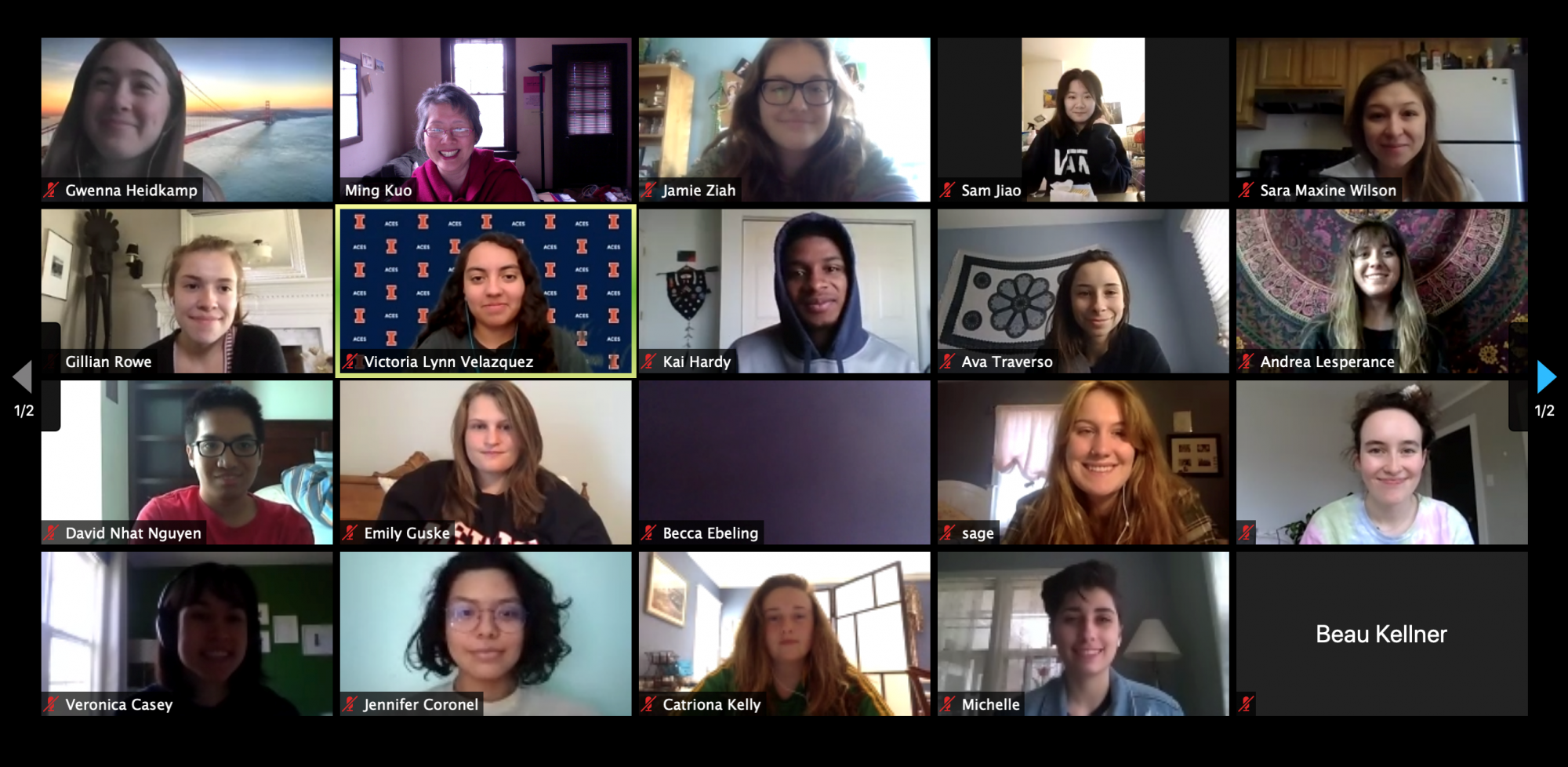Bad-science busters shift keen minds to COVID-19

URBANA, Ill. – Twice a week, Ming Kuo’s cheerful face completes a checkerboard of about 30 undergraduate students in an online classroom. They’re meeting for a University of Illinois course called Environmental Social Science Research Methods, but Kuo calls it “Detecting Bad Science.”
The course isn’t normally online, but six weeks into the university's switch to distance learning amid the COVID-19 pandemic, this year is decidedly different. And the course material is, too.
Normally, the class introduces students to social science research methods and explains how they can be applied – appropriately or inappropriately – to environmental research and policy.
“Ordinarily, we would be learning how to critically examine and apply cutting-edge science to real-life natural resource challenges,” says Kuo, an associate professor in the Department of Natural Resources and Environmental Sciences in the College of Agricultural, Consumer and Environmental Sciences at Illinois. “How do we tell truly promising new discoveries from overblown or premature claims?”
But since mid-March, the students are using their bad-science-busting powers to vet – and battle – misinformation around COVID-19.
“This class has 110% made me a much better B.S. detector,” says Shannon Thomas, a junior in Natural Resources and Environmental Sciences. “Especially now with so much misinformation being spread around, I can confidently say I've gained the necessary skills to think for myself and evaluate information thoroughly.”
When Kuo made the switch, social media was swirling with debate over mask wearing – this was prior to the current CDC guideline and Illinois mandate to wear face coverings in public – and how to handle groceries and packages. The class carefully waded into the maelstrom, methodically weighing the science-based merits of each claim and counterclaim. To date, they’ve examined almost a dozen COVID-19-related issues in the news.
The approach not only hones critical-thinking skills – an intended outcome of the original version of the course – it also helps students feel empowered in a time when everything feels out of control.
“The class has helped me stay informed and calm about the pandemic because I can navigate the scary headlines,” says Jennifer Coronel, a senior in Natural Resources and Environmental Sciences. “It has really opened my eyes to how wild the media has gotten with COVID-19. Dr. Kuo has shown us a lot of evidence and really broken it down for us to help us pick out misinformation. I've even been correcting my family members when they tell me about some misinformation they heard in the news.”
Regaining a little bit of control in the context of the pandemic is especially important for these students, most of whom had to move home suddenly after spring break. Many are studying and attending classes in close quarters with siblings and parents, stretching overloaded internet connections with multiple Zoom calls every day.
“I have a large family, so the Wi-Fi is always super slow,” Coronel says. “It's always pretty loud, too. I have to hide away or constantly tell everyone to be quiet.”
Seniors in Kuo’s class are also mourning the loss of their final semester on campus and missing the pomp and circumstance of an in-person graduation ceremony.
In response to the precipitous end of her college career, Gwenna Heidkamp, a senior majoring in Earth, Society, and Environmental Sustainability in the College of Liberal Arts and Sciences, says, “I won't be able to walk to class ever again or see my friends on a regular basis. I feel saddened and a little let down.”
There are upsides in the midst of all the upheaval. Heidkamp says cutting out travel time to class frees up time to get work done, and Coronel is happy her online classes are recorded and available for later review. But mostly, students in this semester’s version of Environmental Social Science Research Methods are grateful Kuo ditched her original lesson plans.
“I actually really like the shift in content! It's nice to not have to ignore what is actually happening while also being able to go forward with class,” Thomas says. “It makes the situation a lot less abstract and class much more useful as we navigate through so much misinformation surrounding the coronavirus.”
Kuo says, “To me, it’s an example of how I want a world-class university to respond to a crisis: To teach our students rare, valuable skills, give them hands-on experience addressing real-world challenges, and serve the community.”